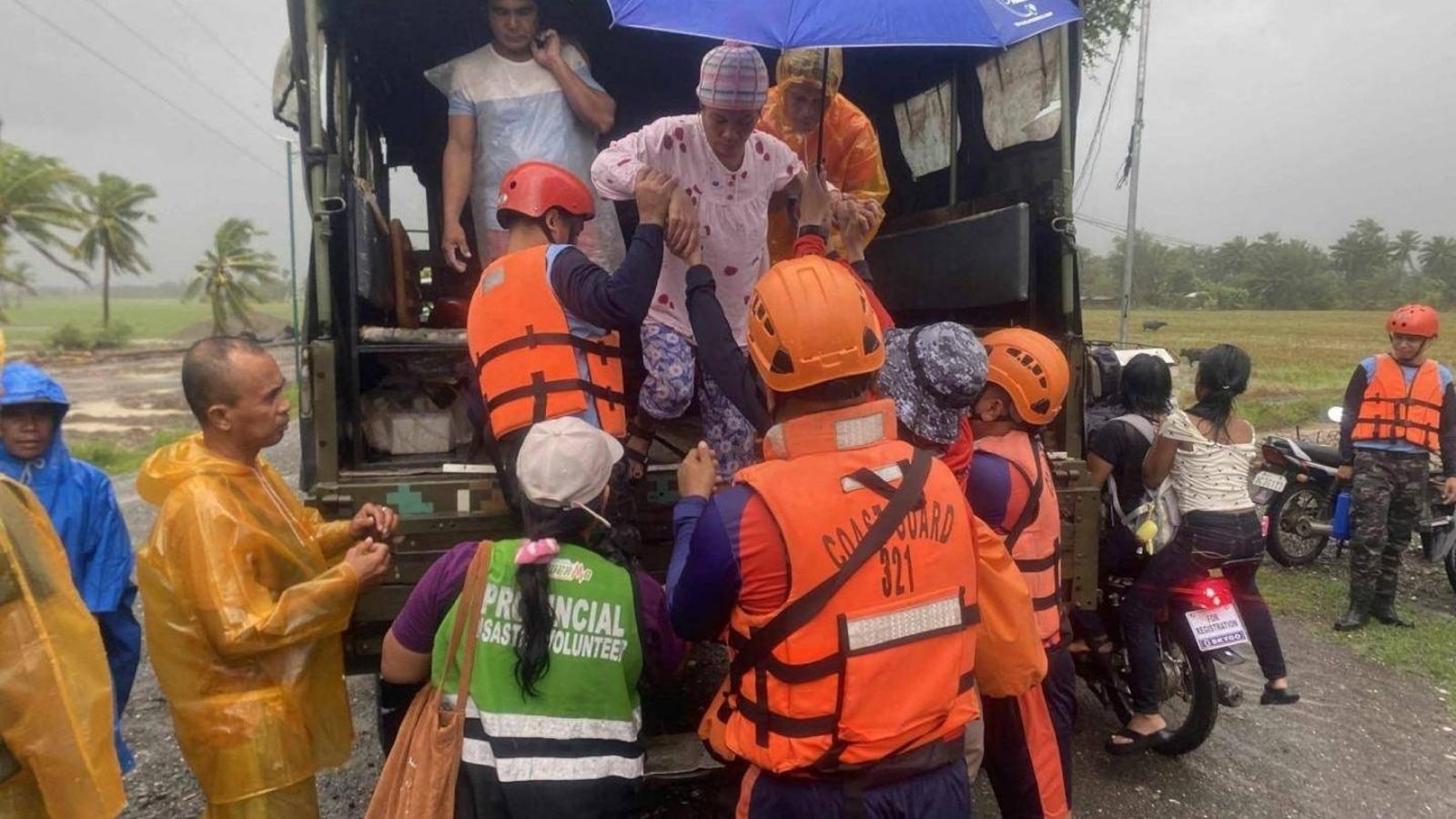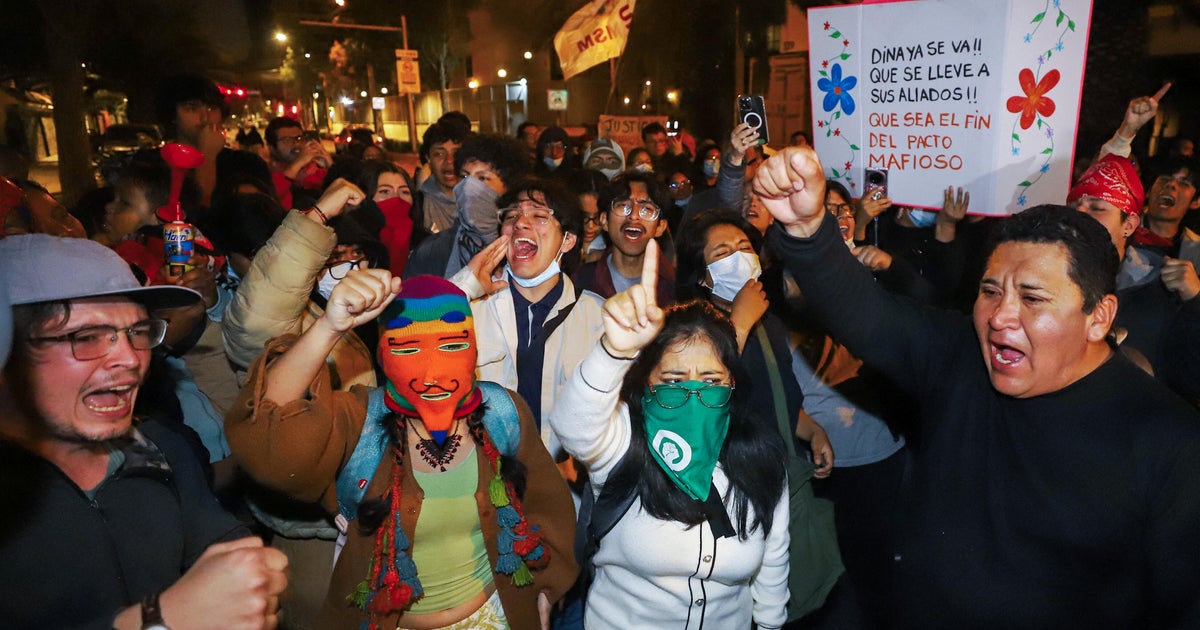Information is emerging regarding the degree to which 2025 Nobel Prize winner María Corina Machado and her team have engaged the administration of President Donald Trump to promote the idea that Venezuelan president Nicolás Maduro is the head of the Tren de Aragua, a criminal gang that was designated a Foreign Terrorist Organization in January.
An investigative report by Reuters revealed that her team promoted this message to National Security Advisor designate Mike Walz in early January, before the inauguration. Machado herself made the case in May in an interview with Donald Trump Jr. saying, “We all know that the head of the Tren de Aragua is Maduro. The regime created, promoted, and funds the Tren de Aragua.”
This idea is one of the justifications for the massive naval buildup off of the coast of Venezuela, and could lead to a regime change operation in that country, despite U.S. intelligence suggesting that Maduro does not direct Tren de Aragua.
Read more: Trump’s Domestic Pressures for a Potential War in Venezuela
This effort is the latest episode in a long trend of displaced or exiled opposition leaders using false, misleading, or exaggerated information regarding supposed threats coming from their countries to encourage U.S.-led regime change.
The most famous case, of course, is that of Ahmed Chalabi and the Iraqi National Congress who helped convince key members of the Bush Administration that Saddam Hussein was close to having weapons of mass destruction and had links to Al Qaeda. This was the justification for the invasion of Iraq. As it turned out, there were no weapons of mass destruction, and the invasion of Iraq resulted in the deaths of 4,492 U.S. service members and approximately 200,000 Iraqi civilians.
The 2011 NATO action in Libya was another case in which opposition leaders convinced Western countries of an imminent genocide in Benghazi that needed to be prevented by military action. This led to the overthrow and death of dictator Muammar Gaddafi, and years of chaos and civil strife. Later research suggested that that threat had been greatly exaggerated.
The misinformation can go in other directions as well. The Bay of Pigs invasion of Cuba in 1961 was able to mobilize U.S. military support by claiming that the Cuban people and military would quickly turn against the government of Fidel Castro once the operation landed on Cuba. In fact, citizen support never materialized, and the operation was a humiliating failure for the Kennedy Administration.
The search for foreign backing to take or regain control in your homeland is as old as political conflict itself. The Venezuelan opposition has spent the last 20 years forwarding a barrage of arguments for how Venezuela represented a national security threat to the United States that would only end with intervention. From Iranian missile installations in western Venezuela, to Hezbollah training camps on Margarita Island, to the Right to Protect in 2019, to now, a criminal invasion directed by Nicolás Maduro.
Of course, stories such as these only work when they fit in with existing agendas in the U.S. government. In this case, Secretary of State Marco Rubio, hailing from a family of Cuban immigrants to South Florida, has long sought regime change in Venezuela, and now has the chance of a lifetime to make it happen. The one impediment is that Trump has never cared a whole lot about human rights or democracy and is a long-term critic of regime change operations. But the idea of Maduro as the head of a criminal enterprise terrorizing the United States has allowed Rubio to repackage military action against Venezuela as an anti-narcotics campaign.
The idea that the go-fast boats blown up by U.S. drones were operated by Tren de Aragua is also without evidence. Tren de Aragua is not known to have ever engaged in maritime drug trafficking. In fact, researchers at Insight Crime suggest they are not known to participate in cross-border drug trafficking, instead focusing on small-scale, local drug distribution and extortion rings. Unsurprisingly, when there have been survivors of these bombings, they are quickly repatriated to their home countries instead of being taken to U.S. military bases for interrogation like other “unlawful enemy combatants.” Interrogation would likely have generated testimonies revealing that they had nothing to do with Tren de Aragua, or any other designated terrorist organization.
With Trump, this repackaging has taken a particularly cruel twist as he has used it to stigmatize Venezuelan immigrants. It was the justification for use of the Alien Enemies Act with which 238 Venezuelan men were sent to the Center for Terrorism Confinement in El Salvador. Investigative journalism showed that most of these men did not even have criminal records, much less form part of a gang.
This use of the Alien Enemies Act is currently making its way through federal courts. It was blocked by the Fifth Circuit Court of Appeals in September specifically because the majority argued that the U.S. is not at war with Venezuela. Since then, the Trump administration’s appeal for an en banc rehearing by the full Fifth Circuit Court has been granted, and it will be reargued in the coming weeks or months. One can be sure that the utility of having hostilities with Venezuela for this case is not lost on the administration.
Read more: Venezuela Accuses Trump of ‘Fabricating’ a War As U.S. Deploys Aircraft Carrier
The current accusation of Nicolás Maduro as head of a criminal and terrorist enterprise is also accompanied by the usual suggestions that intervention would be a cake walk. Venezuelan opposition leaders abroad suggest that simply removing Maduro and few of his officials would allow María Corina Machado’s team to neatly take over. The reality is that Venezuela is full of guns, held by guerrilla groups, collectives, drug traffickers, and illicit miners, not to mention the armed forces run by hundreds of generals with extensive economic interests and strong desires to avoid justice.
To be clear, Maduro is a heinous dictator, and there is a need for international engagement. But just what is to be done should be developed on the basis of real facts and analysis, not the tall tales of exiled and displaced leaders, which have led to disastrous miscalculations in the past.











 English (US) ·
English (US) ·